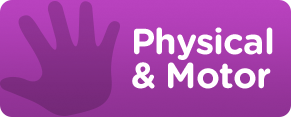Eight to Nine are considered the end of “early childhood” and with good reason – by this age, your child is able to concentrate longer, solve problems creatively and knows when to ask an adult for guidance. It is a year of transition from total dependence to measured independence, when children take pride in making their decisions and keeping track of their own schedule and possessions.
Here are some typical milestones you may see in your 8 - 9 year old:

Language & Cognitive Development
- Speaks clearly and fluently with few grammatical lapses and all consonant sounds are well-established
- Tella time accurately
- Combines both visual and phonetic strategies to read fluently with good comprehension
- Uses books and other written sources to find information
- Writes for a variety of purposes (letters, stories, explanations) with correct spelling, punctuation and paragraph structure
- Counts to 1,000 and can apply mathematics to three- and four-digit numbers
- Understands size and order
- Understands concepts of perimeter and area

Physical & Motor Development
- Performs basic movements for sports including baseball, soccer, basketball, skiing, tennis, golf or gymnastics
- Identifies themselves as “athletic” or “unathletic”

Social & Emotional Development
- Defines sense of self-worth but may be frustrated about perceived weakness
- Relies on adults for a sense of security but proud of independence; may resist adult guidance at times
- Enjoys being with friends in either structured group activities or during their free time
- Becomes bossy and argumentative
- May “team up” with friends against the opposite gender
- Enjoys secrets and begins displaying a sense of loyalty
Remember your child is a wonderful, unique individual and may not exhibit every one of these milestones. A wide range of behaviors is considered normal and some children will demonstrate certain abilities earlier or later than this schedule. Should you have any concerns about your child’s progress, please ask your pediatrician or family physician.






